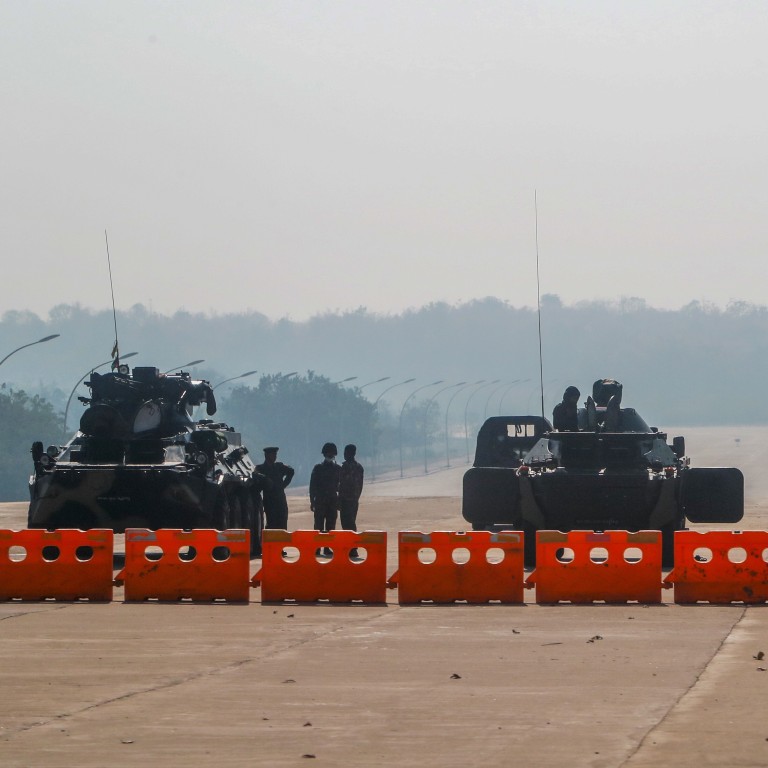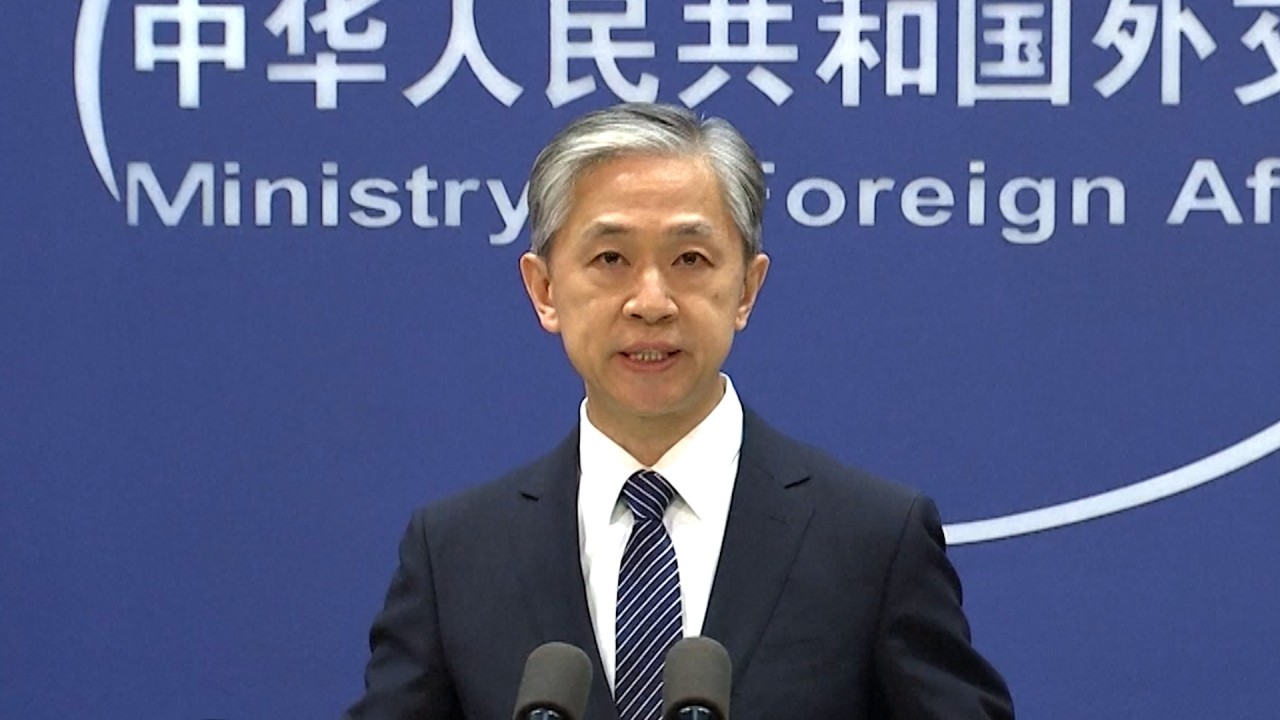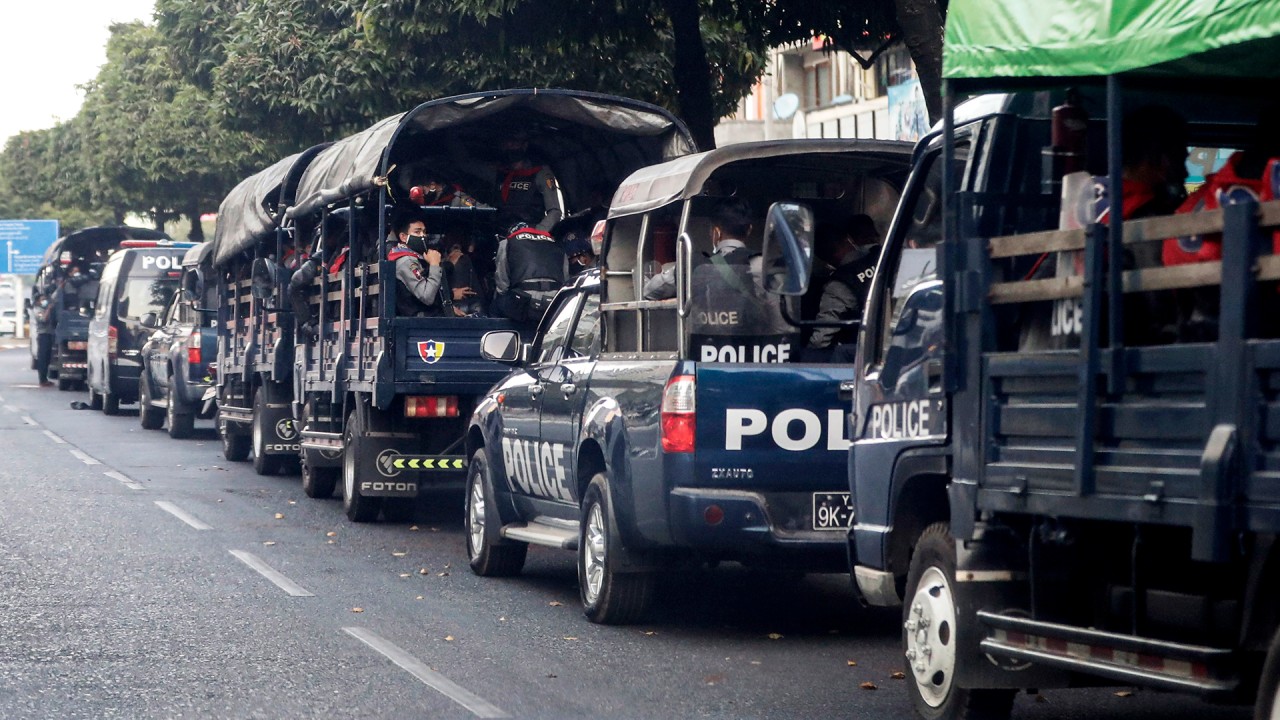
Myanmar coup raises risk of delays for Chinese investors, analyst says
- Military announced that it will replace top government officials in departments, ranging from finance to foreign economic relations
- This could mean that some deals will have to be renegotiated, observer says
The ministries affected include finance, international cooperation, foreign economic relations as well as interior and foreign affairs.
Some of the officials were involved in talks on Chinese investment, adding to uncertainty over Chinese projects, according to Yin Yihang, a researcher on Myanmar affairs at the Taihe Institute, a Beijing-based think tank.
“Many of the people replaced used to be involved in economic cooperation,” Yin said.
“It means that some deals may need to be renegotiated, and this could discourage many Chinese investors.”

00:28
China hopes Myanmar resolves differences under legal framework after Aung San Suu Kyi detained
One of the biggest joint projects is a railway linking Mandalay, Myanmar’s second-biggest city, with Kyaukpyu, a coastal town on the Bay of Bengal and the terminus of oil and gas pipelines extending into Yunnan province in China.
Plans are also under way for a Chinese-funded deep water port and several industrial projects in Kyaukpyu.
In the last few weeks, the two countries have also signed a memorandum of understanding for a feasibility study for the China-Myanmar Economic Corridor to link Yunnan with Myanmar via Kyaukpyu and eventually connect to the Indian Ocean.
Myanmar’s military, which refused to accept the result of November’s general election, said a state of emergency would stay in place for a year, when fresh elections would be held.
Yin said that as a result, the projects could be delayed.
“Chinese investment in Myanmar will probably tend to be tapered in the short-run,” he said. “Meanwhile, the Chinese government and companies will do more careful assessments of the projects in the pipeline.
“I don’t think there will be more big projects going ahead right now.”
Myanmar coup: China calls for calm ahead of emergency UN Security Council meeting
A Chinese commercial lawyer who has worked in Myanmar for five years said US sanctions could be a concern for Western companies but less so for Asian investors.
“The military government moved really fast and the newly appointed ministers have good reputations in the business community and are believed to be friendly to investors,” said the lawyer, who declined to be named.
“Although there are risks of political changes, many businesspeople and foreign investors in general believe that the military government can create a more active investment environment ... and is more experienced in governance.”

04:08
'Worst nightmare': violence feared after Myanmar military coup
China and Myanmar have long had close economic and diplomatic ties, with China one of its neighbour’s few sources of foreign investment after the West imposed trade and finance sanctions in the late 1980s.
In 2010, Myanmar launched a series of political and economic reforms, including releasing Suu Kyi after 15 years of house arrest.
Western sanctions were eased and the country attracted an influx of foreign investment, particularly from Southeast Asia, China, Japan and South Korea.
“Since then, Chinese investors, whether government-related or from the private sector, seem to have eased off,” Yin said.
According to the Directorate of Investment and Company Administration of Myanmar, Myanmar had US$4.35 billion in investment from China between 2011 and 2012, but the figure dropped sharply to US$231 million the next fiscal year.
Singapore has since replaced China as the largest foreign investor in Myanmar.
Additional reporting by Amber Wang

